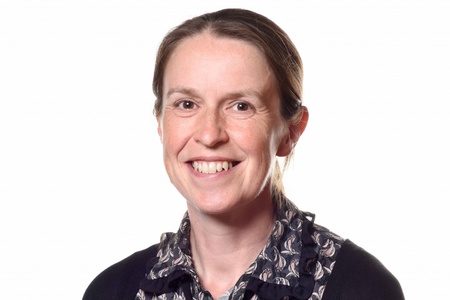Professor Corri Black explains how when it comes to implementing Artificial Intelligence in healthcare, fine-tuning the technology is only part of the challenge.
For some, Artificial Intelligence conjures up images of a dystopian future where the cyborgs have taken over. For others it’s just the stuff in our mobile phone that makes our lives a little easier.
Whether you have “techno joy” or “techno fear” (to paraphrase Eddie Izzard) it is quite incredible that 20 years ago, six out of 10 people in the UK didn’t even own a computer - whilst today it’s quite common to ask ‘Alexa’ to play us music or for a small plastic box to be roaming your house doing the vacuuming while you are at work.
From ‘smart’ home devices to helping prevent fraud in the banking and finance sector, Artificial Intelligence (AI) plays a role in most of our lives in one way or another and its influence is only going to spread further.
For researchers and clinicians like myself, data analytics is an increasingly important and effective tool for ensuring healthcare services are more targeted, efficient and adaptable to meet the needs of patients. But equally important is using patients’ data in a way that the majority are comfortable with – not an easy task! The same apprehension exists when it comes to Artificial Intelligence – a term that, as outlined above, is used extremely broadly and can mean many things to different people.
You may have seen in November we announced that the University of Aberdeen and NHS Grampian are partners in Scotland’s £15m industrial centre for artificial Intelligence research in digital diagnostics (iCAIRD), which brings together a pan-Scotland collaboration of 15 partners from across academia, the NHS, and industry. But what does that really mean? What does it mean for people accessing NHS services? And are people happy for AI to be used in this way?
Well, a lot of the work that we will be doing in Aberdeen will hopefully answer some of these questions. We want to understand what is acceptable and what we need to provide in the way of information, infrastructure and governance in the use of data to make people feel comfortable with AI being used to help as part of their diagnosis and care pathway.
One of the specific areas we will be working on involves using computers to assist radiologists in making the diagnosis of a problem picked up when breast screening. We will also be looking at stroke and fracture detection.
Mammography as part of the breast screening programme at the moment is extremely labour-intensive. Two separate highly trained radiologists have to view breast images in a timely fashion, and they have to be absolutely accurate every time.
We have a real shortage of radiologists across the UK and so there is a danger that if we cannot find other ways to help those radiologists work quickly and efficiently then there might be more delays in reaching a diagnosis and getting patients the care they need.
So the question is whether there is a part to be played by a machine that could take a look at those scans and work in partnership with humans to identify areas that should be looked at more closely; acting as an assistant to the radiologists to speed things up and make sure they are more accurate each time.
There are a lot of questions about whether the technology can work - whether it is acceptable, and what we need to see in order to know that it was performing in a way that we are comfortable and happy with. We aim to do this in a four-way partnership with patients, clinicians, researchers and industry.
We especially want to take patients with us on this journey. It is crucial that they are involved in shaping the way this, or any new technology, is implemented into how they are treated.
To that end, we are inviting members of the public, patients, clinicians, and industry along to the official launch of the iCAIRD North project on March 11.
This is an opportunity for members of the public to hear more about the scope of the project and, along with clinicians, academics and industrialists, propose additional projects that could benefit from the iCAIRD infrastructure and framework.


